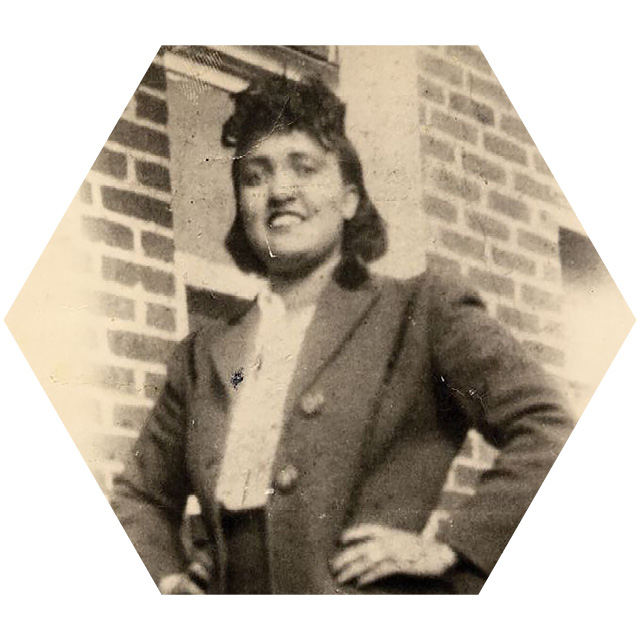Henrietta Lacks

Henrietta Lacks (1920 - 1951) was an African-American woman who left an indelible mark on the world of science through her unwitting contribution to medical research.
In 1951, Henrietta was diagnosed with cervical cancer, and during her treatment at Johns Hopkins Hospital in Baltimore, Maryland, a small sample of her cancerous cells was taken, without her knowledge or consent. These cells, known as HeLa cells would become the first essentially immortal cell line, capable of dividing indefinitely in laboratory conditions.
HeLa cells proved invaluable in medical research, contributing to numerous breakthroughs in vaccines, cancer treatments, IVF and the understanding of human biology. However, Henrietta and her family remained unaware of her cells' importance as none of the companies that profited from her cells either asked for consent or provided any financial compensation to the Lacks family.
It was not until the 1970s, more than two decades after her death in 1951, that the story of Henrietta Lacks and the origin of the HeLa cells became widely known and the ethical implications of using Henrietta's cells without her consent were recognised. Her legacy has sparked discussions on informed consent, patient rights, and the need for ethical guidelines in medical research.
“This name highlights a lot about science, including the contribution that patient samples can make and the ethical issues that arise from situations such as these.”
Anonymous nominator

